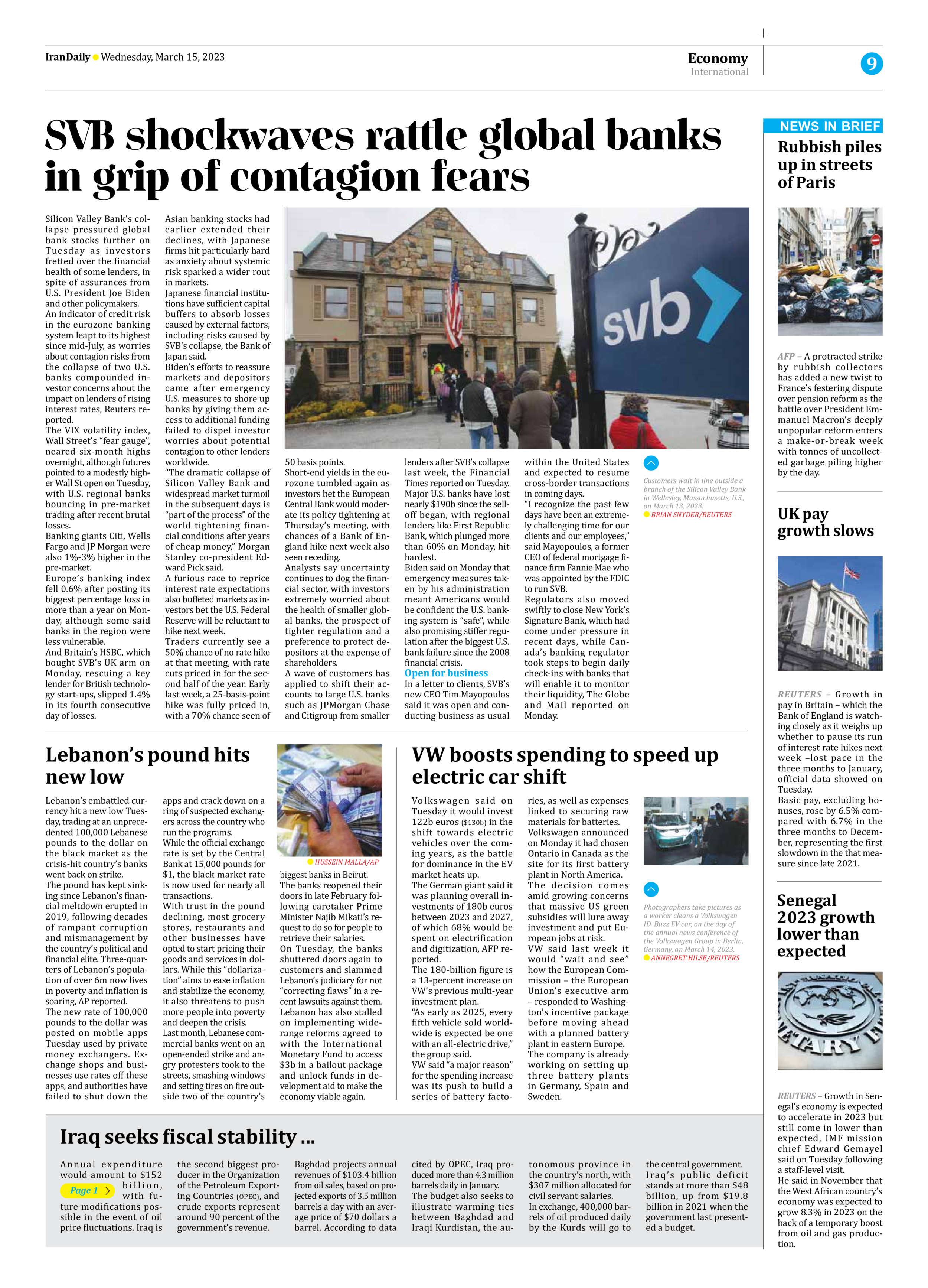
Lebanon’s pound hits new low
Lebanon’s embattled currency hit a new low Tuesday, trading at an unprecedented 100,000 Lebanese pounds to the dollar on the black market as the crisis-hit country’s banks went back on strike.
The pound has kept sinking since Lebanon’s financial meltdown erupted in 2019, following decades of rampant corruption and mismanagement by the country’s political and financial elite. Three-quarters of Lebanon’s population of over 6m now lives in poverty and inflation is soaring, AP reported.
The new rate of 100,000 pounds to the dollar was posted on mobile apps Tuesday used by private money exchangers. Exchange shops and businesses use rates off these apps, and authorities have failed to shut down the apps and crack down on a ring of suspected exchangers across the country who run the programs.
While the official exchange rate is set by the Central Bank at 15,000 pounds for $1, the black-market rate is now used for nearly all transactions.
With trust in the pound declining, most grocery stores, restaurants and other businesses have opted to start pricing their goods and services in dollars. While this “dollarization” aims to ease inflation and stabilize the economy, it also threatens to push more people into poverty and deepen the crisis.
Last month, Lebanese commercial banks went on an open-ended strike and angry protesters took to the streets, smashing windows and setting tires on fire outside two of the country’s biggest banks in Beirut.
The banks reopened their doors in late February following caretaker Prime Minister Najib Mikati’s request to do so for people to retrieve their salaries.
On Tuesday, the banks shuttered doors again to customers and slammed Lebanon’s judiciary for not “correcting flaws” in a recent lawsuits against them.
Lebanon has also stalled on implementing wide-range reforms agreed to with the International Monetary Fund to access $3b in a bailout package and unlock funds in development aid to make the economy viable again.







